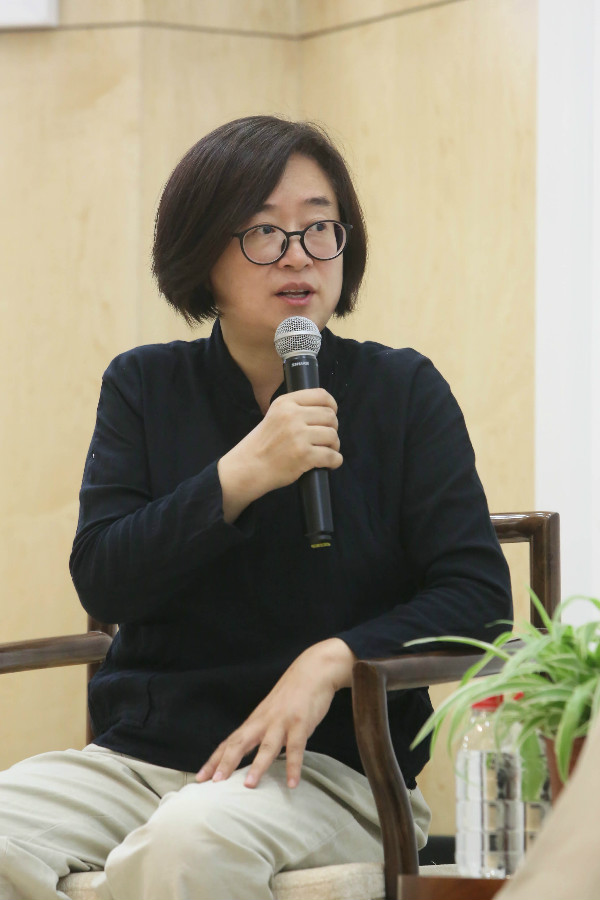On June 1st, 2016, Professor Lyu Zhi of the Peking University School of Life Sciences, Director of the Center for Environmental Protection and Social Development, gave a lecture at Peking University titled, “The Values of Environmental Protection” as part of Yenching Academy’s China Studies Lecture Series.

More than thirty years ago, Professor Lyu, then still an undergraduate student, made an unusual trip to Qinling to observe the behaviors of the giant pandas there. At that time, it was highly unorthodox for anyone to travel into the dense forests alone, let alone a female student in her twenties. This trip had a huge influence on Professor Lyu. She said, “It was precisely my experience in Qinling through which I gained the important personal insight into the real life implications of environmental protection.”
Professor Lyu noticed in Qinling that the local deforestation rate was unbelievably high due to the logging industry, and had seriously affected the natural habitat of the giant panda. However, she had no right to deny locals the right to logging, as it was their only source of income with which to feed their families. Thus, due to the unique economic circumstances, the traditional environmental protection method of simply forbidding logging was not effective. As a result, Professor Lyu started evaluating the price of nature, linking environmental protection and the market together in order to provide economic incentives for locals to conserve nature.
“It wasn’t easy assigning price tags to the environment because it is absolutely priceless to us,” Professor Lyu explained. For example, if you add up the benefits of a tree in respect to its ability to absorb CO2, release O2, protect water, and beautify the environment, a single tree can provide as much as US$200,000. However, despite the difficulties, Professor Lyu continued to develop a system of evaluating the market price of the environment. Based on this idea, Professor Lyu was a major sponsor of the “Panda Honey Initiative,” selling “panda honey” made by bees in the natural habitat of the giant panda. Currently, the market price of the “panda honey” is about 500 RMB per 500g. “We not only want to market the panda honey to consumers, we want them to understand the story behind it,” she said. “We want them to understand that panda honey represents the market incentive of locals to protect giant pandas and the greater initiative to protect our natural habitat.”
In addition to exploring the crossroad between the market and environmental protection, Professor Lyu also wished to change the society into one where people would protect the environment as an end in itself. This is not easy, but she seemed encouraged by projects in Tibet and Qinghai to protect sacred religious sites. “When I go to Tibet,” Professor Lyu said, “I feel a balance between human and nature. Thanks to tradition and religion, people in Tibet fear and respect nature. I think in that environment, you naturally have a peaceful mindset and a respect to all life.” Therefore, Professor Lyu is trying to combine traditional culture, religious doctrines, and organic science together to convince locals to better protect the environment. “I don’t think Tibetans gain a lot of economic benefits from environmental protection,” she shared. “But they are still very enthusiastic about it.”


Towards the end of the lecture, Professor Lyu shared her insight from three decades of experience in environmental protection. “We often judge things only according to our values, and this can become limiting,” Professor Lyu said. “Every one of us needs to continue to study and understand how others think.” Finally, Professor Lyu invited Yenching Scholars to consider entering the field of environmental protection and help protect our shared future for centuries to come. Perhaps in the future, former Yenching Scholars will return to the Academy to share their own stories of environmental advocacy and protection, inspired by Professor Lyu’s example.
Written by Xiao Linlin; Translated by Gary Xie